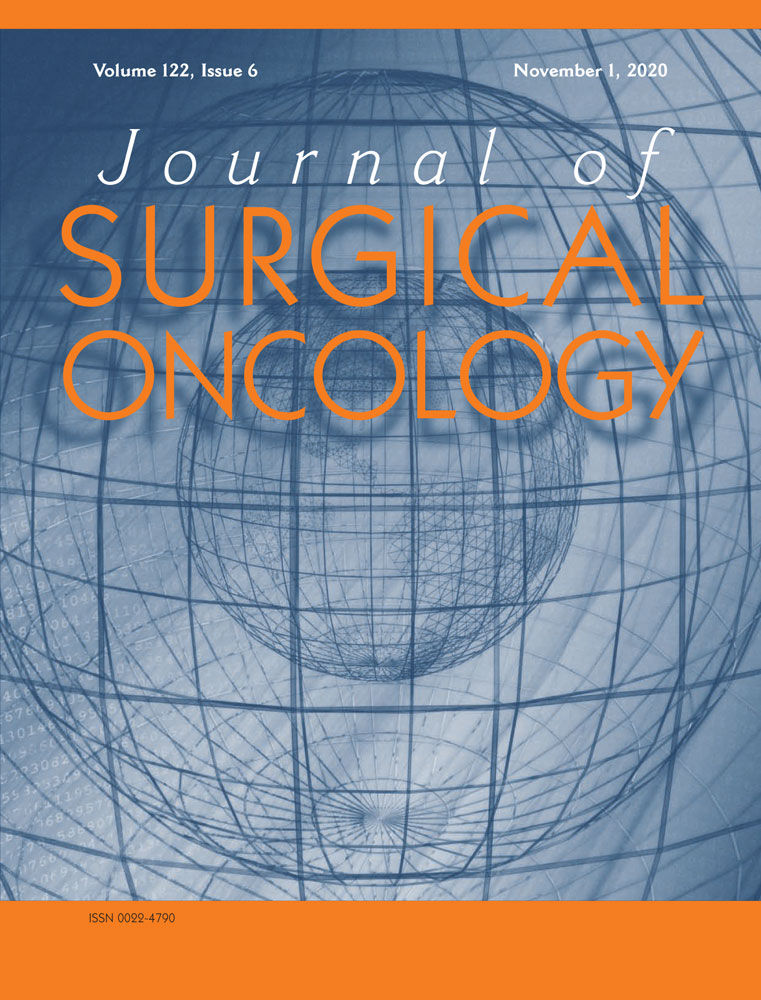Critical analysis of lymph node examination in patients undergoing curative-intent resection for adrenocortical carcinoma
Abstract
Background
Adrenocortical carcinoma (ACC) is a rare tumor and the role of lymph node dissection remains ill-defined. This study evaluates the effect of nodal examination on prognosis and survival in patients undergoing curative-intent resection of ACC.
Methods
The National Cancer Database (2004-2015) was queried for patients undergoing margin-negative resection for ACC. Patients with distant metastases, neoadjuvant therapy, multivisceral resection and T4 tumors were excluded.
Results
Among 897 patients, 147 (16.4%) had lymph nodes examined. Factors associated with lymph node examination included increasing tumor size (P < .001), extra-adrenal extension (P < .001), open operation (P < .001), and resection at an academic facility (P = .003). Lymph node metastasis was significantly associated with extra-adrenal tumor extension (P = .04). Lymph node harvest, regardless of the number of nodes examined, was not associated with a survival benefit. Median overall survival was incrementally worse with increasing number of positive lymph nodes (88.2 months for N0, 34.9 months for 1-3 positive nodes, and 15.6 months for ≥4 positive nodes, P < .001).
Conclusions
Lymph node harvest and lymph node metastasis were associated with more advanced tumors. Although nodal harvest did not offer a survival advantage, stratifying the nodal staging classification may provide important prognostic information.
Open Research
DATA AVAILABILITY STATEMENT
The data that support the findings of this study are available on request from the corresponding author upon reasonable request.




